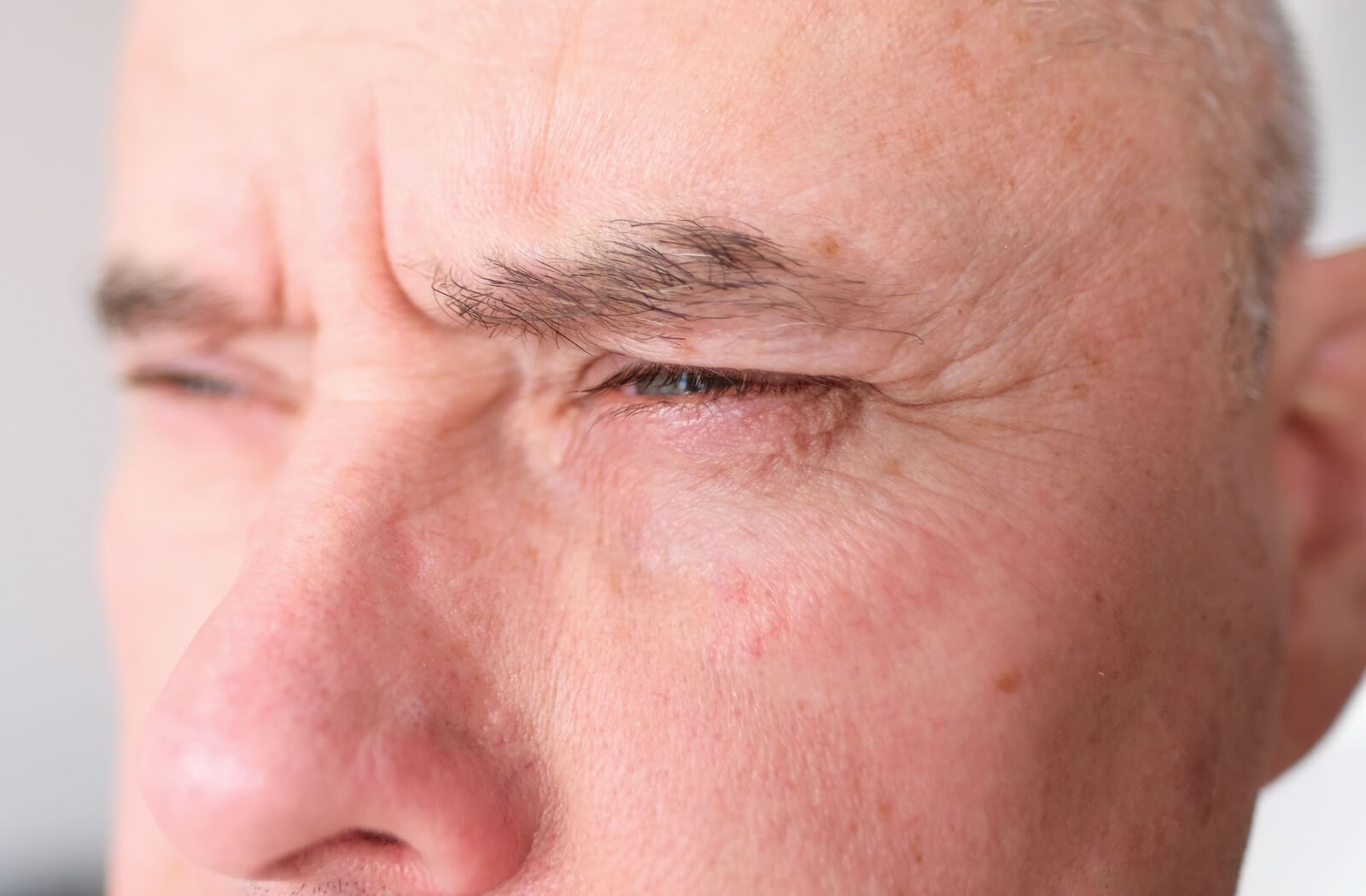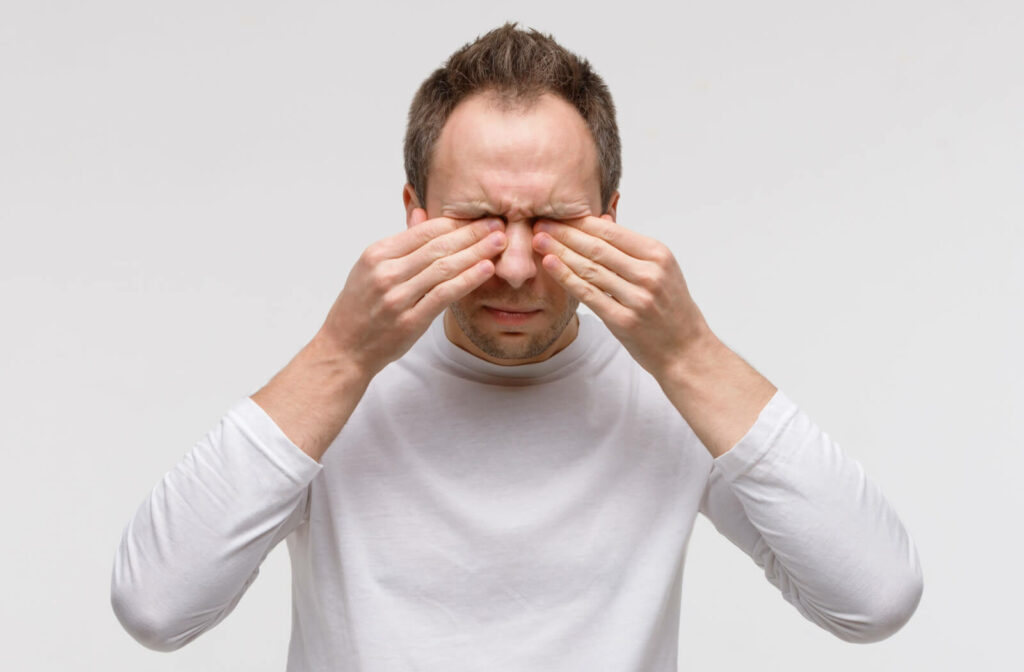Dry eyes. If you’ve ever felt a burning and gritty sensation that doesn’t seem to go away, you’ve probably experienced this condition. It’s a common problem that develops when your eyes can’t produce enough tears or the tears being produced can’t do their job properly. Dry eyes can cause a range of problems from headaches to blurry vision, but many people find themselves asking: can dry eyes lead to blindness?
While it is possible, it’s extremely unlikely that dry eyes will lead to blindness. Typically, dry eyes can be treated with the help of your optometrist. But if they’re left untreated for too long, the eyes are missing vital protection, leaving them exposed to scratches or infections. If this is the case, it can damage your vision in the long term, making treatment an essential thing to seek.
What Is Dry Eye?
Dry eye is an extremely common eye condition. It occurs when your tears aren’t able to properly protect your eyes, leaving them vulnerable and exposed to the air. It’s most recognized by a burning, irritating, dry sensation on the surface of the eye.
It happens either because:
- Your eyes aren’t producing enough tears, or
- Your body’s tears are lacking in key fluids to properly do their job
Either way, it results in significant discomfort. It can often feel like there’s sand trapped between the eye and eyelid, or like your eyes are burning and irritated. And unfortunately, it’s considered a chronic condition. While it may go away on its own after a short period of time, it’ll likely return in the future unless you seek a form of dry eye therapy.
What Causes Dry Eyes?
Your eyes naturally produce a film of tears, and you spread them across the surface every time you blink. This protects the eye and keeps it hydrated. But when something goes wrong with these tears, it can lead to dry eyes.
There’s a thin layer of oil on the outside of your tear fluid. These oils, made in the meibomian glands, are responsible for keeping the tear from evaporating too quickly while keeping a smooth outer surface. When a problem develops with the meibomian glands—like meibomian gland dysfunction—these oils no longer protect the tear. So it evaporates too quickly, and your eyes aren’t properly protected.
But dry eyes can also be caused by environmental factors or medical conditions that force the eye to work harder. These can include:
- Aging, as the body begins to naturally produce fewer tears as you get older
- A hormonal change—particularly in women during menopause
- Certain medications like antihistamines, decongestants, some blood pressure medications, and antidepressants
- Medical conditions like rheumatoid arthritis, thyroid problems, or diabetes
- Extended use of contact lenses
It can even be caused by living in a particularly dry, dusty, or windy environment since your eyes need to work harder to properly protect themselves. Dry eye has plenty of potential causes, so it’s essential to visit your optometrist for a proper diagnosis.

Can Dry Eyes Make You Go Blind?
Dry eye most often causes a burning and gritty sensation on the surface of your eyes. But remember: when your eyes don’t have that healthy film of tears, they’re vulnerable.
If it’s left untreated for too long, it can eventually lead to complications like corneal damage or an eye infection. And if this develops, it could potentially lead to vision loss. It’s important to note though, that this is extremely rare.
Fortunately, dry eyes are easy to treat with the help of a trained optometrist.
Can You Treat Dry Eyes?
There are several treatment options available for dry eyes. But like any other eye condition, it begins with getting a proper diagnosis from an eye care professional. They’ll perform a thorough examination of your eyes before suggesting an appropriate form of treatment.
Sometimes, dry eyes can be treated with a mix of:
- Over-the-counter artificial tears
- Prescription eye drops designed to stimulate tear production
- Anti-inflammatory prescription medication
- Minor lifestyle or dietary changes
There are even in-office treatments designed to address the root causes of your dry eyes. One common option is Intense Pulsed Light, or IPL, therapy. This uses special rays of light to stimulate the meibomian glands so they can produce the right amounts of oils for your tears.
Another common option is Low-Level Light Therapy, or LLLT. This uses low levels of red and infrared light to stimulate the area around the eyes and can help reduce inflammation. In turn this can help improve your body’s natural tear production.
Here at One Vision Eyecare, we take it a step further and use The Eye-Light to do both of these treatments at once. When they’re used together, IPL and LLLT can significantly reduce meibomian gland dysfunction and may help you find relief from dry eyes.
Where to Get Help for Your Dry Eyes
If you’re suffering from dry eyes, come visit us at One Vision Eyecare in East Gwillimbury. We understand how much of an impact this condition can have on your life, and we’re here to help. Our team of experienced professionals can give you a diagnosis for your dry eyes, so book an appointment with us today.




